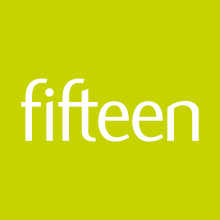Internet giants Google and Facebook have announced that only serious news articles will be allowed on their networks after Donald Trump’s election was blamed on ‘too much fun’ on the web.
Facebook founder Mark Zuckerberg said: ‘People are idiots. Apparently they can’t tell the difference between an obvious joke and the real thing.
‘People were having a laugh sharing satirical stories and memes about Trump and the result is they’ve voted in a joke president!
‘It’s clear that people having fun on the internet has dangerous consequences, so it’s only serious stuff on Facebook from now on!’
Or at least that’s what you might think if you only read the headlines and the first few paragraphs of stories you see online.
Or can’t tell the difference between an obvious joke and the real thing.
Primary purpose
However, there is a serious side to Google and Facebook’s recent announcements that they would cease allowing sites that publish ‘fake news’ to profit from their respective advertising networks.
Google wants to ‘restrict ad serving on pages that misrepresent, misstate, or conceal information about the publisher, the publisher’s content, or the primary purpose of the web property’ while Facebook have created a ‘taskforce’ to address the issue.
The intention is to hamstring sites that deliberately spread made-up stories as clickbait, but where does that leave satirical news sites for whom misrepresentation is part of the joke? And who is going to decide what ‘fake’ actually means?
Nanny statement
Although some are just plain hoaxes, many of the ‘fake’ stories being cited as examples of the misrepresentation Google and Facebook want to clamp down on are in fact genuine events portrayed in a skewed fashion by partisan sources (which, more or less, is basically all news everywhere), while others are ‘incredibly convincing’ spoofs.
But in any of these cases, attempts to nanny us by hiding these links would insult the intelligence of users. By having such stories removed from your newsfeeds, you are being told you are stupid to be trusted; too dumb to recognise a hoax, a disreputable source or a satire when you see one; that you’ll believe anything you read without question.
While nobody wants their newsfeeds cluttered with clickbait, surely the judgement about the value of a news item rests with the reader? One person’s scurrilous conspiracy blog is another person’s vital independent news outlet, while one person’s scandalous tabloid is another’s crusading voice, and so on.
All news is subjective and assuming that Google and Facebook won’t have the resources to independently fact-check every single story, the new policies will amount to arbitrary, pre-emptive rulings of what is worthy to be displayed on a social network.
Isn’t the point of social networks that we are the arbiters?
You can’t handle the spoof!
We don’t yet (and probably never will) know how Google and Facebook will determine what news is ‘real’ and what is ‘fake’, but there are naturally concerns that benign satirical sites such as The Onion, The Daily Mash or Southend News Network will become collateral damage.
If these publishers are identified as misrepresenting the purpose of their content – which their plausible headlines and lead paragraphs are entirely designed to do – they will surely be caught out by the ‘fake filter’ and will be starved of traffic and revenue as a result.
It would be a great shame if peddling satire on the internet ceases to be a worthwhile exercise because Powers That Be don’t trust us to judge for ourselves what news is real or not. (And that’s without even opening the can of conspiracy worms that says it might be entirely convenient for Google and Facebook to ‘disappear’ sites that regularly satirise institutions like Google and Facebook.)
Satire is not simply an excuse for a cheap laugh and some silly made-up names. It is an important part of our culture that dates back centuries – nay, millennia. It is an art form that allows the ridiculous elements of our society to be examined and challenged. It’s no coincidence that the first ‘satirical’ (named after the satyr of Greek mythology) plays were performed by the same civilisation who invented democracy. Often there is more truth in a deftly observed spoof than a dozen pieces of earnest journalism.
True believers
For as long as there has been satire, there has also been gossip. The spreading of dodgy rumours and urban myths did not begin with the internet, but there was never a power capable of stopping pub bores spinning a spurious yarn. Google and Facebook are acting like nosey landlords, lurking by your table ready to tell you off if your conversation veers into hearsay or parody they don’t reckon much to.
If Google and Facebook think they are capable of prejudging what news is worthy, they are more naïve than people who share spoof news stories alongside their outraged comments of ‘You couldn’t make this up!’
When it comes to the news, a mistruth can spread just as easily from the front pages of widely circulated newspapers as from the bedroom of a malcontent who knows how to knock up a reasonable-looking hoax news page. We shouldn’t be reading anything without considering its veracity and the credibility of the source, and this particularly applies to our beloved mainstream media.
Rather than reducing the amount of ‘dangerous’ fake or spoof news we see, Google and Facebook will effectively be rubber-stamping the news stories it does allow as ‘genuine’. Far more dangerous than exposing gullible people to absurd pastiches of current events, creating a stream of officially sanctioned ‘real’ news will encourage users to take things at face value all the more.
Google and Facebook may not want to ban fun, but they are edging towards banning critical thinking.
